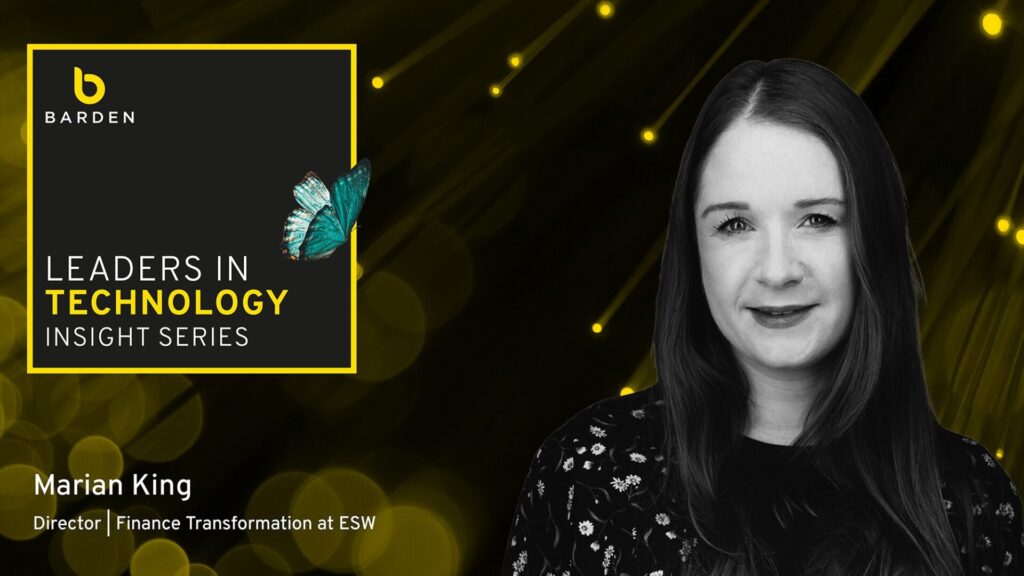Can you tell us a bit about background and career to date? And how your role evolved into Transformation in ESW?
After completing my training contract in a Big 4 firm and achieving my ACA qualification, I worked in various roles in multinational companies, focusing on financial operations, financial reporting, and FP&A, covering the entire scope of the finance department. In many of my previous roles before ESW, I did project work alongside my regular duties, which I really enjoyed, and I subsequently achieved my PRINCE2 certification.
Joining ESW 4 years ago, I saw a chance for transformation (bigger than I imagined!). Leading the revenue team, we tackled improvements with the entire finance department, embracing technologies like analytics and RPA. Balancing change with BAU was challenging but rewarding.
A couple of years in, it was decided that to achieve large-scale change, we needed a separate team dedicated solely to transformation. I had the opportunity to lead this from a finance perspective and have a great team of passionate people who are committed to making a meaningful impact. We also have strong partnerships with the wider business, so we are not transforming alone.
Change management can make or break the successful implementation of a transformation agenda in an organisation. How big of a challenge has it been to get people on board with carrying forward that change, and how do you overcome it?
Change management can be a challenge but it is critical to transformation. Without it, transformation efforts can fail, even with the best tools and intentions. People often think of transformation as just technology, but the people element is equally, if not more, important. In my previous roles, I’ve seen how a lack of focus on change management led to failed transformations or inefficient implementations.
At ESW, change management is a big focus. We have dedicated personnel and maintain constant, clear communication. We closely engage with the finance team impacted by the changes, addressing resistance and fostering a culture of adaptation and progression, aiming to bring everyone along with us.
Are there any particular tools that have been especially impactful for your business, or any emerging tools you think will be significant in the next few years?
Over the last couple of years, we have used RPA tools like UiPath, business analytics tools like Alteryx, bespoke cloud technology built for us by Centiro, and data visualisation tools. Combining these tools for end-to-end processes has been key. While technologies like RPA and analytics have been around, their impact continues to grow as we learn to use them more effectively together. Currently, we are focused on a large-scale project involving data transformation and ERP implementation. The advancements we have gained from other technologies are very helpful and not lost in our larger projects.

Can you discuss the role of Generative AI in finance transformation?
It’s important to learn how to use Gen AI effectively. We are on the brink of something huge with Gen AI, but there are considerations like security, timing, and best practices. Our focus is on integrating Gen AI with existing technology to improve efficiency. In transformation, staying up to date with new developments, testing them on a small scale, and planning for their future fit is crucial. For instance, Gen AI can handle tasks like documentation and transcription, freeing up time for strategic thinking. This flexibility allows better planning and focus on large-scale changes, even if people aren’t always in the same place. On an individual level, it’s good to use these tools to enhance day-to-day efficiency. However, from an organisational perspective, we must carefully assess their impact before fully committing.
What challenges have you faced in attracting talent to this field, and has there been any misalignment between expectations and actual roles?
One challenge is that people often don’t fully understand what finance transformation entails. Even outside of work, people ask what it means to be in finance transformation. There’s a broad set of skills required, and people may not realise they have the relevant skills.
However, interest in this field is growing. There’s more conversation about new technologies, and AI has sparked curiosity. The challenge is aligning people’s expectations with the reality of the roles, which often require a mix of finance technical skills and soft skills like communication and collaboration.
For someone looking to transition into finance transformation or progress their career in this area, what advice would you give?
Finance transformation is an exciting and dynamic field, especially for those with a finance background. Key advice includes focusing on data strategy, which underpins successful technology use. Agility and adaptability are crucial, as is collaboration across the business, given the broad set of skills required for transformation. Change management, people skills, staying up to date with new technologies, and seeking mentorship are also important elements for success in this field. Overall, it’s an exciting and rewarding space, and I highly recommend taking the leap.


 Jump Back
Jump Back

